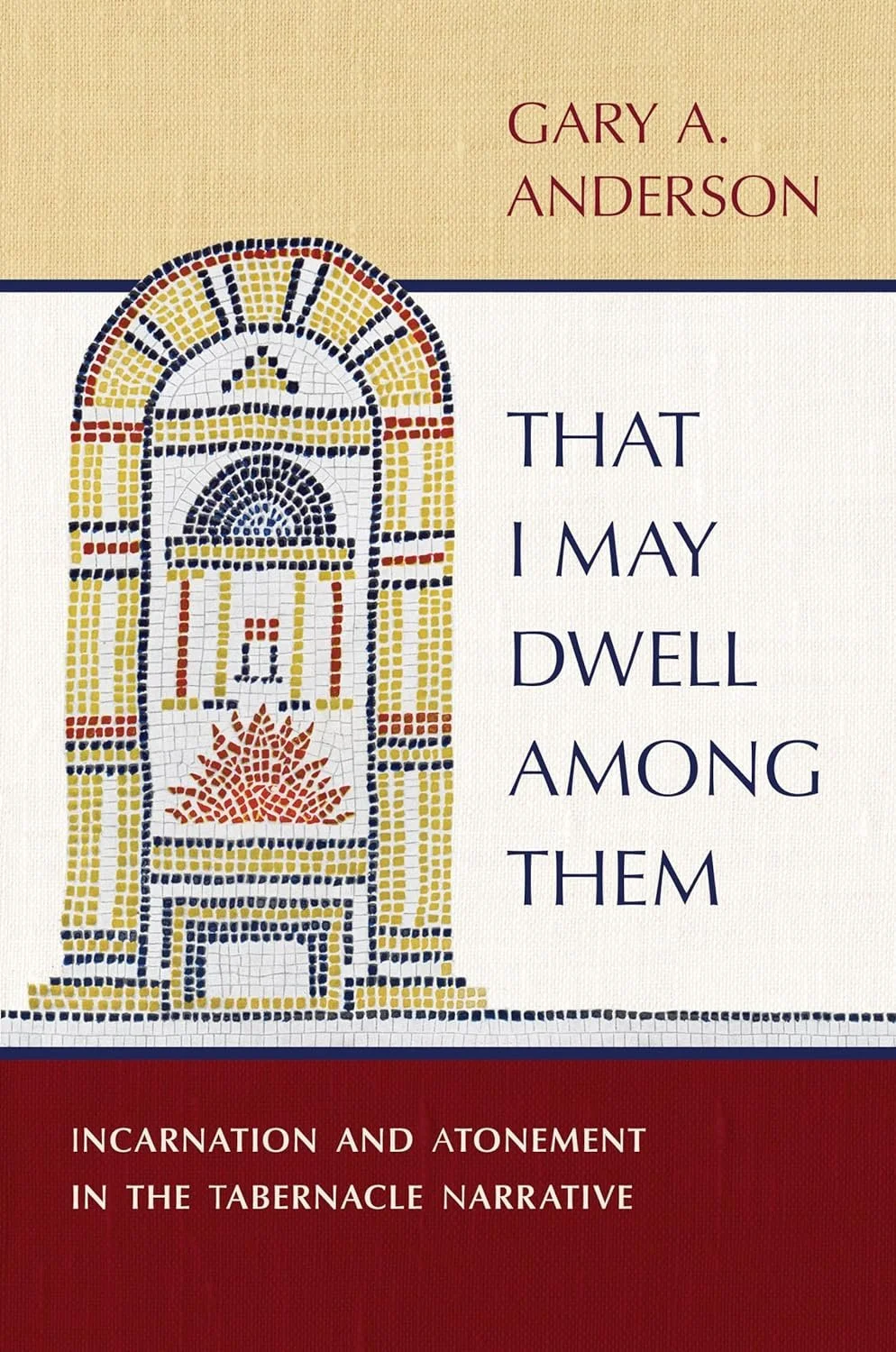The views expressed in this article are of the author only and do not necessarily represent those of the Center for Pastor Theologians.
That I May Dwell Among Them: Incarnation and Atonement in the Tabernacle Narrative
Gary A. Anderson
Eerdmans (2023). 254 pp.
Gary Anderson is the Hesburgh Professor of Catholic Thought at the University of Notre Dame. Without a doubt, he is a definitive voice in the theological interpretation of the HB/OT. Throughout his career, he has shown himself to be theologically adept, historically informed, and exegetically incisive. For those interested in this kind of work, Anderson’s scholarship finds close affinity to the Anglican scholar Walter Moberly (Durham) and the Jewish scholars Jon Levinson (Harvard) and Benjamin Sommer (Jewish Theological Seminary).
What is particularly appealing about Anderson’s work is not only his ability to engage with the biblical text on an exceptionally high level, but to do so with his theology in hand. He never brackets out his theological or historical heritage as a Catholic. Instead, he allows the text of Scripture—rightly interpreted—and his theology—rightly understood—to mutually inform each other. His work is highly informative and illustrative of the kind of scholarship that is often most beneficial to the church.
His most recent book, That I May Dwell Among Them, is no exception. The book takes a deep look at the tabernacle narrative found in Exod 25–40 and Lev 1–9. Part 1 offers Anderson’s exegetical work addressing issues of composition, meaning, reception, and history of interpretation. His work showcases the breadth of his knowledge and the depth of his exegetical engagement with the text of Scripture. At this point in his book, he remains firmly rooted in the near context of the tabernacle narrative.
Although he recognizes this fact throughout the book, the tabernacle narrative is admittedly one of the most tedious portions of Torah. Anderson does what he can to “jazz” it up a bit, but there is only so much an author can do. He helpfully provides large portions of the text in the book, which makes the reading experience more pleasant.
Methodologically speaking, Anderson is deeply indebted to the canonical criticism approach to Scripture developed and advocated for by biblical theologian Brevard Childs. This means that Anderson is loath to neglect historical-critical concerns and instead allows the canonical shape of the text to highlight the tradent’s intended meaning. Further, Anderson’s approach understands the HB/OT as a text which offers its own witness to the God of the Bible, a witness with integrity all its own. This witness is not identical to but informs the Christian witness to the same God found in NT. Indeed, Anderson is careful in his exegetical work because of his conviction that the HB/OT witness still has riches to offer Christians who think Christianly about topics such as incarnation and atonement.
In Part 2, Anderson continues his exegetical work by interpreting the tabernacle narrative in light of the larger canonical context, focusing in particular the Golden Calf narrative (Exod 32–34) and the binding of Isaac (Gen 22). In both cases, Anderson proves the value of slow and careful exegesis. He provides the reader with a wealth of meaningful observations about the nature of sin, the role of obedience in the life of Israel, and the meaning of sacrifice. Finally, Anderson draws the book to a close by engaging in a work of constructive theology. By allowing the HB/OT to maintain its unique witness, Anderson demonstrates its value for Christian theology.
Through the course of the book, Anderson shows the depth of textual complexity and theological richness present within an often-neglected portion of Scripture. In doing so, he has produced what may be one of the best commentaries on the tabernacle narrative. Anecdotally, I have already seen how his insights into the sacrificial system have improved my understanding of other portions of Scripture. This is the best commendation I can give. The diligent reader will no doubt have the same experience.
Stephen Campbell (PhD, Durham University) is a pastor at International Baptist Church of Bonn, Germany, and the Academic Director of The Aquila Initiative in Hennef, North Rhine-Westphalia. He is a member of the St. Hildegard Fellowship of the Center for Pastor Theologians.




